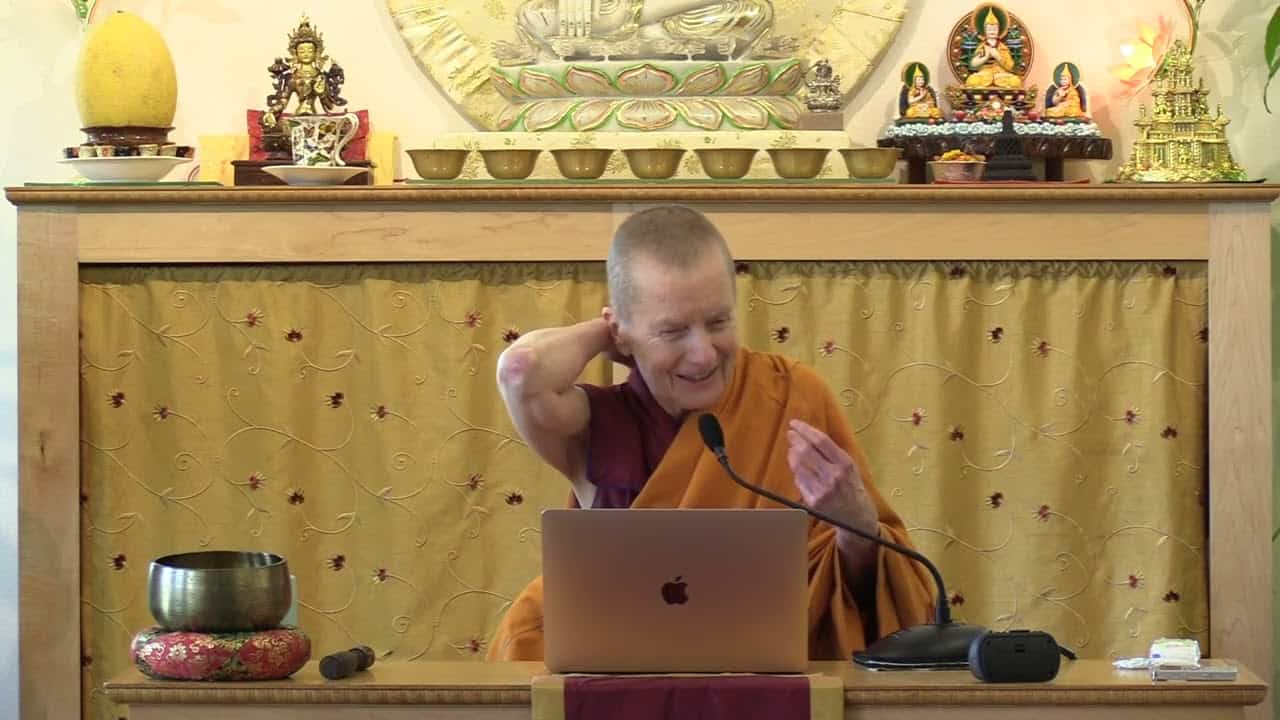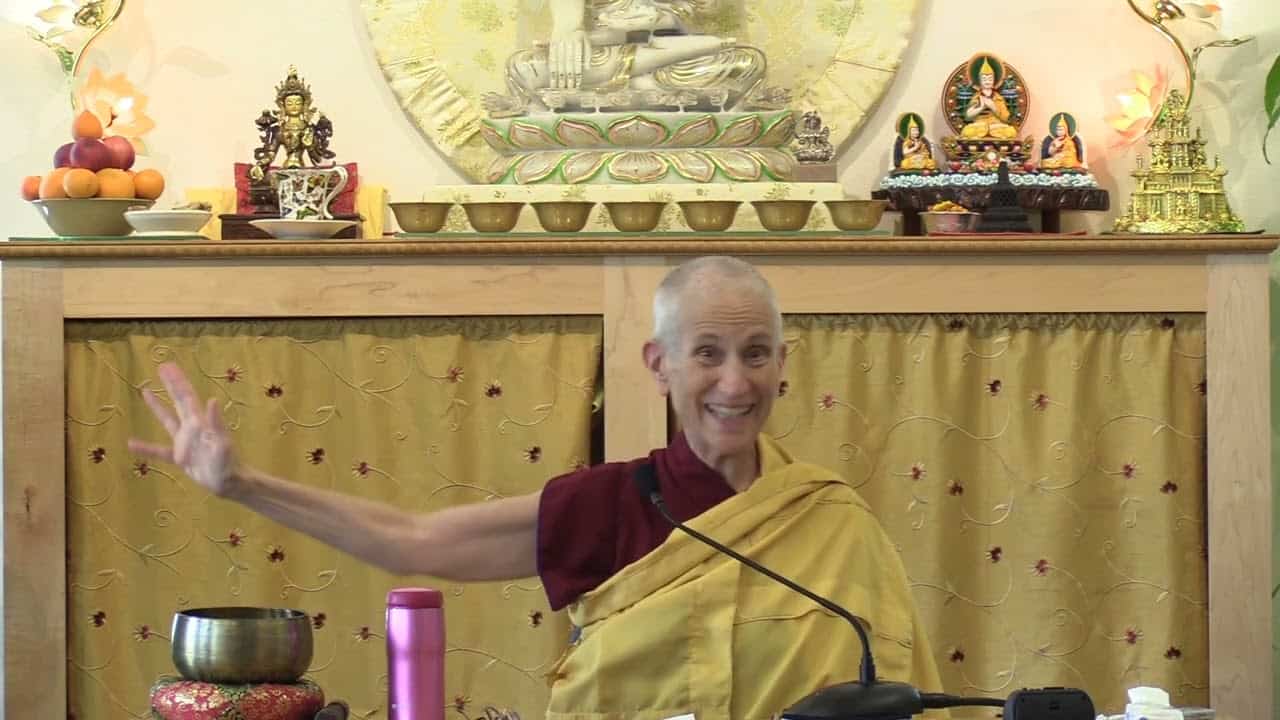Last six of the unshared qualities
14 Following in the Buddha's Footsteps
Part of an ongoing series of teachings based on the book Following in the Buddha's Footsteps, the fourth volume in The Library of Wisdom and Compassion series by His Holiness the Dalai Lama and Venerable Thubten Chodron.
- Buddha’s physical actions are always done to benefit others
- Knowing the dispositions and interests, he teaches dharma in an appropriate manner
- With love and compassion, encompasses all beings with the intention to benefit
- Pristine wisdom simultaneously knows everything in the past, present and future
- Sutra passages explaining Buddha’s magnificent qualities
- Purpose of contemplating the qualities of a buddha
14 Last Six of the Unshared Qualities (download)
Contemplation points
- Consider the Three Unshared Awakening Activities. Imagine the difficulties we, as ordinary sentient beings, have when we wish to benefit others. What would it be like to have these qualities? What differences would there be in our own mind and our interactions with others if we had these qualities; the skillful means to be of benefit to everyone we come into contact with?
- He emanates diverse bodies that appear wherever sentient beings have the karma to be led on the path to awakening. Whatever physical actions he does automatically have a positive effect on sentient beings and subdue their minds.
- He teaches the Dharma in a manner appropriate for that person. His speech flows smoothly, is accurate, and lovely to hear. It does not deceive or lead others astray, but is clear, wise, and kind.
- His mind encompasses all beings with the intention to do only what is of the highest benefit. He effortlessly and continuously cognizes all phenomena
- Consider the Three Unshared Pristine Wisdoms; that the Buddha knows everything in the past, present and future.
- Why is having knowledge of the future not the same as predetermination? What does it mean to know the future?
- How is the Buddha’s knowledge of the exhaustion of pollutants (sensuality, craving for existence, ignorance, wrong views) different from those of the bodhisattvas, sravakas, and arhats?
- The purpose of contemplating these qualities of a buddha is to bring joy to our hearts, expand our mental horizons, enhance our respect for them and the path they followed, and inspire us to follow the same path. How does contemplating these qualities inspire your own mind? How does contemplating them inspire you to benefit others? What can you do in your practice today to start developing the compassion and wisdom to attain these qualities?
Venerable Thubten Chodron
Venerable Chodron emphasizes the practical application of Buddha’s teachings in our daily lives and is especially skilled at explaining them in ways easily understood and practiced by Westerners. She is well known for her warm, humorous, and lucid teachings. She was ordained as a Buddhist nun in 1977 by Kyabje Ling Rinpoche in Dharamsala, India, and in 1986 she received bhikshuni (full) ordination in Taiwan. Read her full bio.


